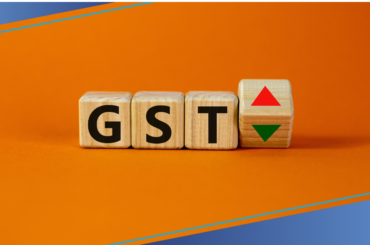The new MSME definition and classification is making news ever since October 2019.
With a hope to create five crore job opportunities in the MSME sector, the Government had announced about making changes to the MSME definition, where turnover will define an MSME, and not the investment put into it.
Table of Contents
What is MSME? – An Introduction
MSME stands for Micro, Small, and Medium Enterprises. In accordance with the Micro, Small, and Medium Enterprises Development (MSMED) Act in 2006, the enterprises are classified into two divisions.
- Manufacturing enterprises – engaged in the manufacturing or production of goods in any industry
- Service enterprises – engaged in providing or rendering services
New MSME Definition & Classification (2020)
In 2020, the Government of India revised the definition and criteria for classifying Micro, Small, and Medium Enterprises (MSMEs) under the Micro, Small and Medium Enterprises Development (MSMED) Act, 2006. The new classification for MSME Registration is based on a composite criterion of investment and turnover instead of the previous investment criterion only.
What is Micro Enterprise?
A micro-enterprise is defined as an enterprise having an investment in plant and machinery or equipment less than one crore rupees, with a turnover that does not surpass five crore rupees. A micro-enterprise can be engaged in manufacturing, services, or trading activities.
What is Small Enterprise?
A small enterprise is defined as an enterprise having an investment in plant and machinery or equipment that is less than 10 crore rupees, and the turnover does not exceed 50 crore rupees. A small enterprise can also be involved in manufacturing, services, or trading activities.
What is Medium Enterprise?
A medium enterprise is defined as an enterprise having an investment in plant and machinery or equipment that is less than 50 crore rupees. The turnover does not go over two hundred and fifty crore rupees. A medium enterprise can likewise be engaged in manufacturing, services, or trading activities.
The investment and turnover figures were changed to larger values, thereby resulting in a larger number of medium-sized enterprises.
UPDATED MSME Classification and Criteria in 2024
Classification of MSME is based on Turnover and Investments as below:
|
Updated MSME Definition and Criteria in 2024 |
||
|
Type of enterprise |
Investment |
Turnover |
|
Micro |
Rs 1 crore |
Rs 5 crore |
|
Small |
Rs 10 crore |
Rs 50 crore |
|
Medium |
Rs 50 crore |
Rs 250 crore |
Investments will no longer characterise MSMEs.
Find out how to register your MSME online in India.
On 13th May 2020, Finance Minister Nirmala Sitharaman added the additional principle of turnover along with the investment.
In October 2019, Union Minister Nitin Gadkari had said that the revised definition of micro, small, and medium enterprises may grant a unified description for all things related to taxation, investment, and more.
The changed definition was to be implemented via an amendment that would further refine the business scenario for Indian enterprises. The Union Cabinet had approved the amendment to change the criteria to classify MSMEs from “investment in plant and machinery” to “annual turnover.”
The new classification aims to encourage MSMEs to grow and expand their business without losing the benefits and incentives provided by the government.
Ministry of Micro, Small and Medium Enterprises
The M/o MSME is the nodal ministry of the Government of India for promoting and developing the MSME sector, including Khadi, Village, and Coir Industries. The current leadership of the MSME ministry consists of Shri Narayan Tatu Rane and Shri Bhanu Pratap Singh Verma as the Minister of State.
Established under the MSME Development Act of 2006, the NBMSME acts as the government’s main advisory body for all matters concerning the MSME sector. The board comprises members from the central and state governments, industry associations, financial institutions, academic institutions, and other stakeholders.
The responsibilities of the NBMSME include the following:
-
To explore the factors affecting the promotion and development of MSMEs and to suggest remedial measures.
-
Review the policies and programs of the central and state governments concerning MSMEs and make recommendations for their improvement.
-
To advise the government on using funds and incentives for the MSME sector and to monitor their implementation.
-
To coordinate with other ministries, departments, and agencies on matters concerning MSMEs and to ensure convergence of MSME loan schemes and initiatives.
-
To facilitate the participation of MSMEs in international trade and to suggest measures for enhancing their competitiveness and market access.
The Ministry of MSME provides various services to the MSME sector through its attached offices, autonomous bodies, and public sector undertakings. Some of these services are:
Testing facilities
The ministry operates a network of testing centres and laboratories nationwide, where MSMEs can avail of quality testing, calibration, certification, and consultancy services for their products and processes.
Entrepreneurship development
The ministry conducts training programmes, workshops, seminars, and awareness campaigns to promote entrepreneurship among potential and existing entrepreneurs, especially women, youth, and marginalised groups.
Project profiling
The ministry prepares and disseminates project profiles and feasibility reports on various sectors and sub-sectors of MSMEs to assist entrepreneurs in setting up and running their enterprises.
Consultancy
The ministry provides consultancy services to MSMEs on various aspects, such as technology upgradation, marketing, finance, management, and legal issues, through its network of field offices and partner organizations.
Export assistance
The ministry facilitates the export of MSME products and services by providing information, guidance, incentives, and support to exporters and by participating in trade fairs and exhibitions, both domestic and international.
Environmental audits
The ministry conducts environmental audits and assessments of MSME units, to help them comply with the environmental norms and regulations, and to adopt eco-friendly practices and technologies.
Features of MSMEs
Here are some of the essential features of MSMEs
- MSMEs are known to provide reasonable assistance for improved access to the domestic as well as export markets for businesses
- MSMEs support product development, design innovation, intervention, and packaging elements of a business
- MSMEs support the upgrading of technology, infrastructure, and the modernization of this sector as a whole
- MSMEs provide employment opportunities and loans
- MSMEs provide credit limits or funding support to various banks in the country
Role of MSMEs in the Indian Economy
The MSME sector has proven to be a highly dynamic factor in the forecasting of the Indian economy. Since MSMEs produce and manufacture a variety of products for both domestic as well as international markets, they have helped promote the growth and development of various product segments and industries.
MSMEs have played an essential role in providing employment opportunities in underprivileged areas. They have helped in the industrialization of such areas with a low capital cost compared to the larger industries in cities. MSMEs have also contributed and played an essential role in the country’s development in different areas like the requirement of low investment, flexibility in operations, low rate of imports, and a high contribution to domestic production.
Why the MSME Definition was changed?
As Finance Minister Nirmala Sitharaman made the announcement about the change, she also addressed the reasons behind it. She said the new definition will bring about many benefits that will aid MSMEs to grow in size.
This was made under Atma-nirbhar Bharat Abhiyaan Economic Package to assuage India’s economic predicament amidst the pandemic.
Combined with all previous economic stimulus efforts, the total amount of the relief package comes to a whopping Rs. 20 lakh crore.
Read more: Highlights from Atma-nirbhar Bharat Abhiyaan Economic Package
Key announcements of Atma-nirbhar Bharat Abhiyaan
- Rs 3 lakh crore collateral free automatic loans for MSMEs
- Rs 50,000 crore equity infusion through MSME Fund of Funds
- Rs 20 crore subordinate debt for MSMEs
- Extension of registration and completion date of real estate projects under RERA
- Immediate pending refunds issuance to all non charitable trusts
- Extension of the due date for ITR for FY’19-20 to November 30, 2020
Old MSME definition based on investment, MSMED Act, 2006
|
Manufacturing Sector |
|
|
Enterprises |
Investment in plant and machinery |
|
Micro enterprises |
< or = Rs 25 lakh |
|
Small enterprises |
> Rs 25 lakh < Rs 5 crore |
|
Medium enterprises |
> Rs 5 crore < Rs 10 crore |
|
Services Sector |
|
|
Enterprises |
Investment in equipment |
|
Micro enterprises |
< or = Rs 10 lakh |
|
Small enterprises |
> Rs 10 lakh < Rs 2 crore |
|
Medium enterprises |
> Rs 2 crore < Rs 5 crore |
Headquartered in New Delhi, the Ministry of MSME is a branch of the Indian Government, which is the apex body for the formulation and administration of rules, and laws, pertaining to micro, small, and medium-sized enterprises in the country.
Having created 11 crore job opportunities in India while contributing to the GDP by 29%, we can say that MSMEs are the heart of the Indian economy. And the change in the definition will enable Indian enterprises to carry out their businesses better.
Razorpay enables payments to many micro, small, and medium-sized companies with its product suite. Sign up now and supercharge your business with Razorpay.
Frequently Asked Questions (FAQs)
Who are MSME companies?
The Ministry of Micro, Small, and Medium Enterprises, a branch of the Government of India, is primarily used for laying the foundation and administration of rules, regulations, and laws relating to micro, small and medium enterprises in India.
What is meant by MSME?
MSME stands for Micro, Small, and Medium Enterprises. It was introduced by the Government of India in agreement with the MSMED (Micro, Small, and Medium Enterprises Development) Act of 2006. As per this act, MSMEs are the enterprises involved in the processing, production, and preservation of goods and commodities.
What is the MSME limit?
Investment limit for Micro Enterprises: Less than 1 crore INR Investment limit for Small Enterprises: 1-10 crore INR Investment limit for Medium Enterprises: 10-50 crore INR The turn-over limit for Micro Enterprises: Less than 5 crore INR The turn-over limit for Small Enterprises: 1-25 crore INR The turn-over limit for Medium Enterprises: 25-250 crore INR.
How can I avail MSME loan?
Individuals can easily avail of an MSME business loan by following the mentioned steps below Fill up the online application form for SME/MSME loan to apply. Submit all the relevant documents to complete the process (KYC documents, address proof, business ownership proof, and financial documentation) * Get money in any bank within 24 hours.
How do you benefit from MSME?
Here are the following benefits of registering MSME in India: You can avail of collateral-free bank loans You can easily acquire government tenders through the Udyam Registration Portal Protection against delayed payments SO Certification Charges Reimbursement
What are the types of MSMEs?
According to the provisions of the MSMED (Micro, Small & Medium Enterprises Development) Act of 2006, MSMEs are classified into two classes i.e. Manufacturing Enterprises and Service Enterprises. The enterprises are further categorized based on annual turnover and investment in equipment.
What is the UAM number?
UAM is a registration form that constitutes a self-declaration format under which the MSME will self-certify its existence, bank account details, promoter/owner’s identity details, and other information required. There’s no fee for filing the UAM number.
Who is eligible for MSME?
You are eligible for MSME if your business is a micro or small enterprise as per the MSME Act. This means your investment and turnover should be below certain limits.
What are the examples of MSME enterprises?
Some examples of MSME enterprises are:
-
Handicrafts and pottery
-
Food processing and agro-based industries
-
Textiles and garments
-
Leather and footwear
-
Engineering and electronics
-
Pharmaceuticals and biotechnology






2 Comments
Very good information
Very nicely framed concept of MSME with all recent amendments. I understood it thoroughly because the flow of content was systematic.